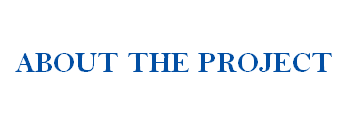|

|
As a starting point we have chosen to approach inclusion and diversity from a
common experience we all share, and we want to arrive at a destination of inclusion, where
difference does not represent a barrier to individual fulfillment and social opportunity.
There will be four partners
representing different schools with experience on
inclusion: a general secondary school from Latvia, special needs school from Belgium and vocational
schools from Romania and Croatia. Our differences in terms of the inclusion will be the richness of our project.
The target groups and participants of the Project are: |
- Teachers, staff active in education from special needs, mainstream and vocational schools
- Students
- Parents and school authorities
The Project will focus on: equity and inclusion, synergies between
policy and practice, creativity, career guidance, innovation of good practices.
The objectives of the project are: |
|
During the first year of the Project teachers will evaluate the process of
inclusion. study materials and resources on inclusion and share good practices by producing
materials, activities and games to stimulate inclusion of all students which will be tested and
evaluated at every partnerschool and during the exchange of students in a completely new environment
by connection between main stream students and special need students–differentiations, diversity
and multicultural education in the classroom.
During the second year teacher training will be organized to improve study materials for inclusive
students and to maintain an effective learning environment, cooperative learning implementation of
inclusive practices and career guidance, key competences and attitudes of an inclusive teacher
will be brought to a higher level. Non-formal activities will be organized to students at each
institution by volunteers. The materials, games and activities produced by teachers of all
partnerschools during the joint staff trainings in and during activities will be tested during the
short term exchange of groups of pupils.
All the participating schools:
|
- will have shared their experience and good
practices focusing on abilities rather than
disabilities,
- will have improved their individual support system
introducing the good practice of other countries
reducing the risk of failure and preventing students
drop outs,
- will have learned how to make effective and
motivating study materials adapted to the individual
needs of every student which will lead to a greater
success,
- will have used the project as a resource in
long-term development of the school.
All the teachers involved in the project: |
- will have raised their motivation to recognize and
support individual needs of students,
- will have developed new professional skills,
competences and strategies.
The project will have assisted institutions to have
well-motivated students in their studies and career
choice according to their specialization, helping
them apply their new skills, enthusiasm and their
interest in their local environment and future
career.
The key outcome of this project is the empowerment
of participants in the sense of their capability to
identify techniques and approaches that are suitable
for them in everyday life and their work. All the
schools will use the project as a resource in
long-term development of the school.
Resources and activities available for
dissemination: |
- Recommendations on equity and quality
- PowerPoint presentation about inclusion in partner
countries
- A collection of materials, worksheets and
activities
- Recommendations how to create effective and
innovative study materials
- Recommendations on competences and attitudes of
inclusive teacher
- Teacher training courses for European teachers
- A collection of games and activities organised to
special needs students by mainstream students and
volunteers
- Career start-up portfolio containing
self-assessment, CV and letter of intent and
questionnaire to test students' interests, learning
styles and attitudes.
- Celebration of the Day of the Inclusion
- Running internal training sessions for
non-participating staff
|
|
 |
|